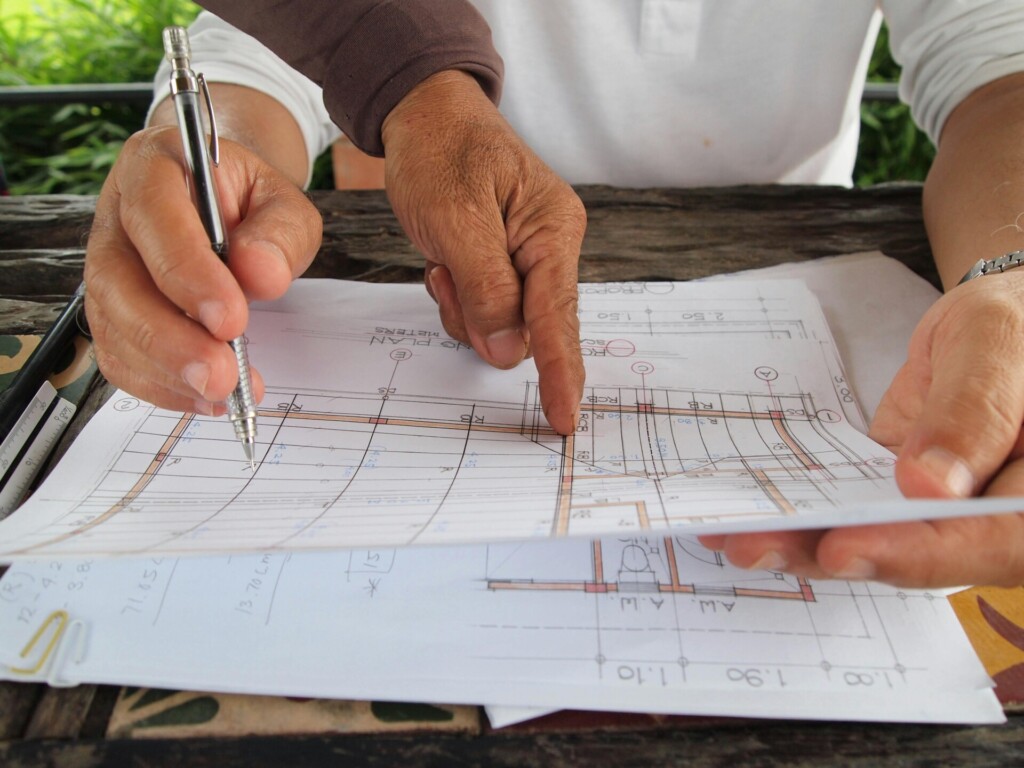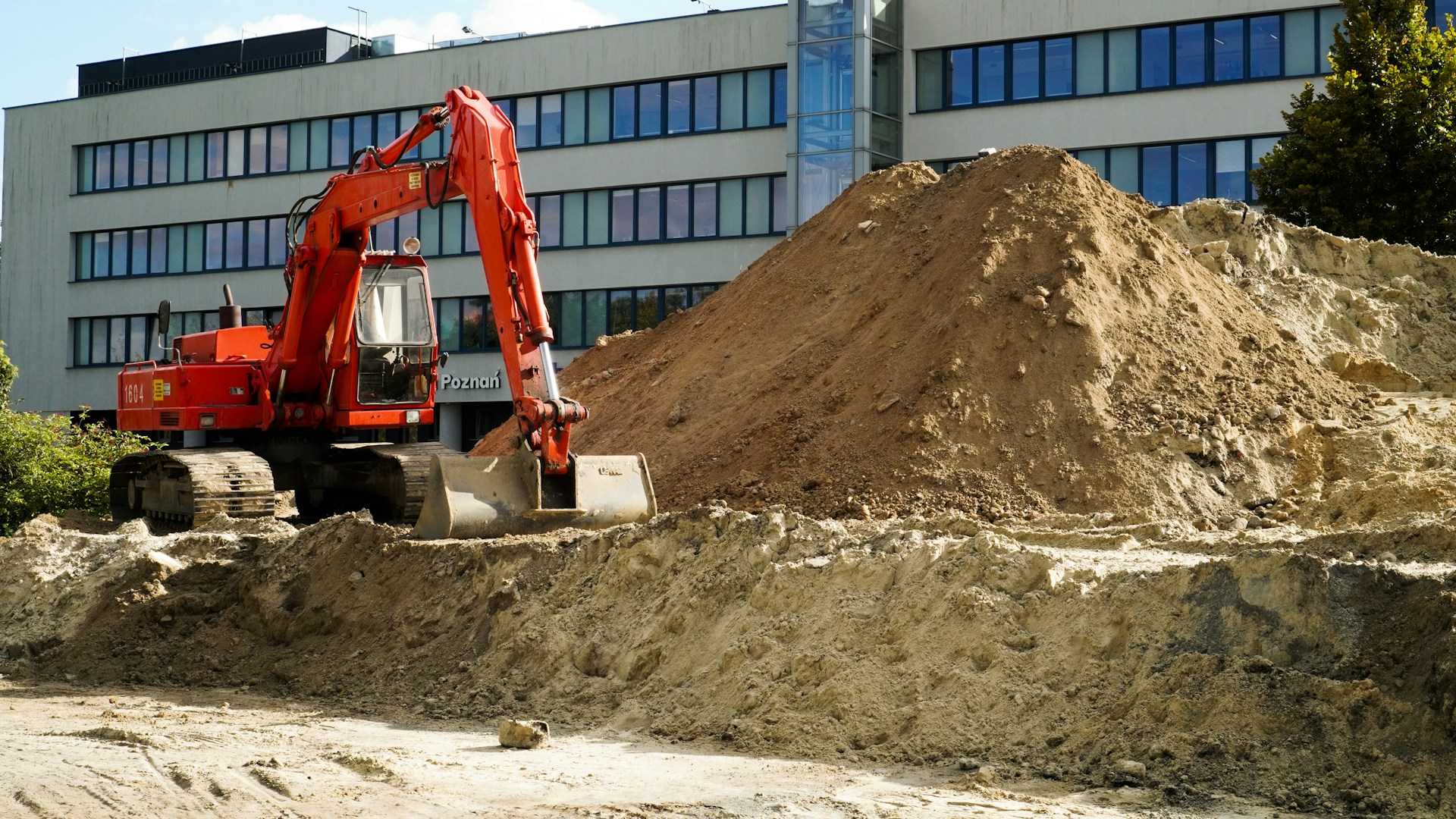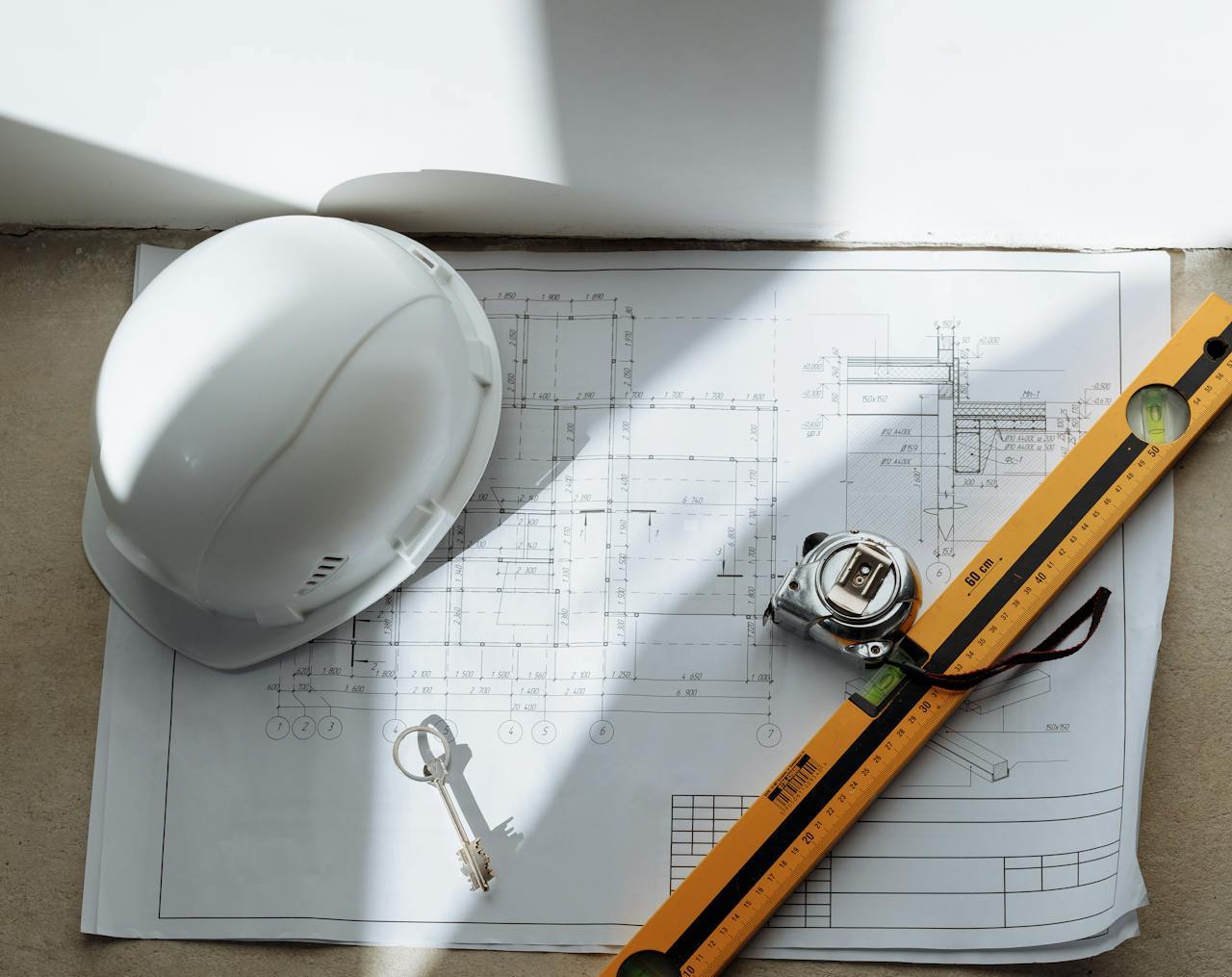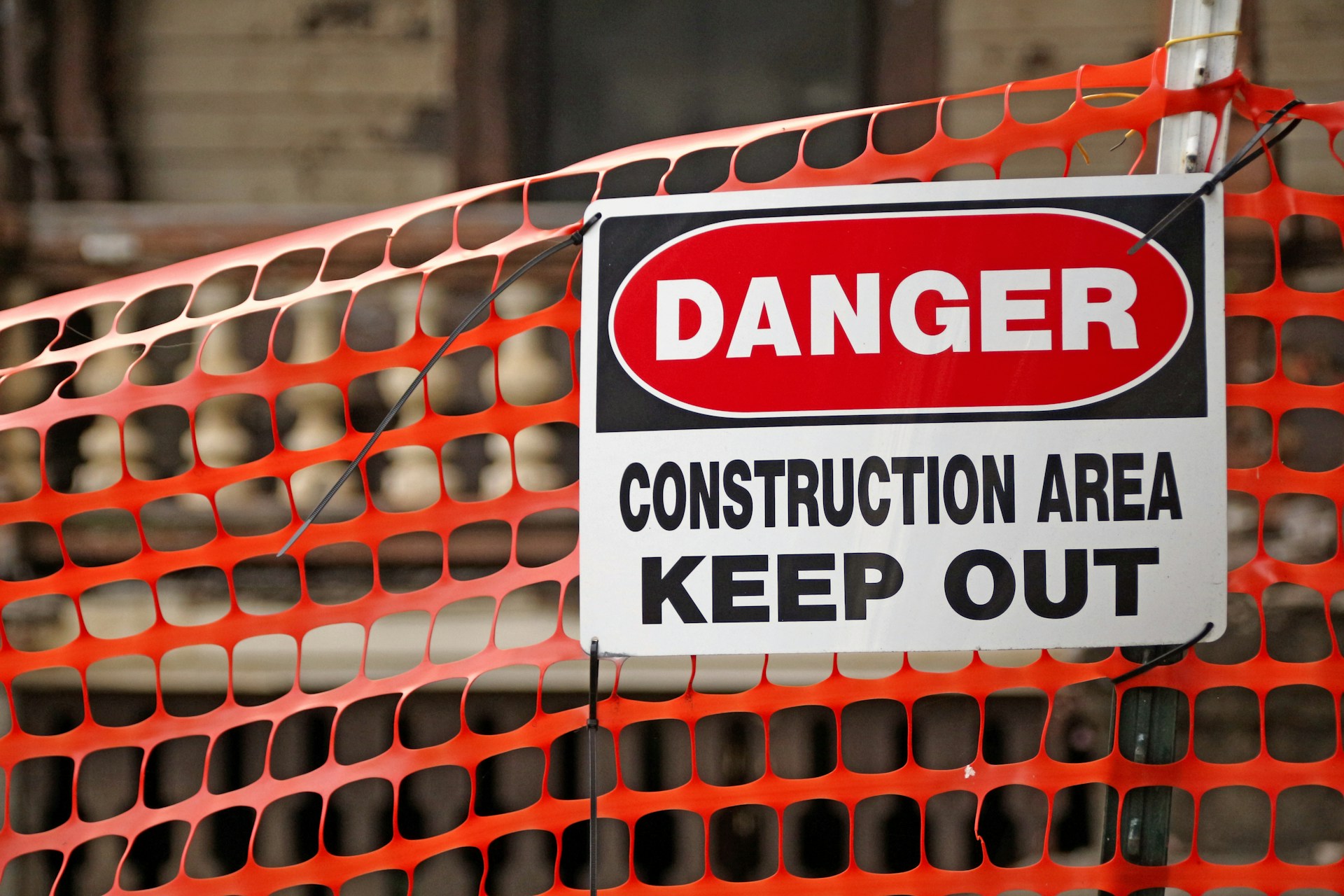Dallas construction permits follow a three-step process that requires careful coordination and advance planning. We apply for permits, manage plan review phases, and schedule building inspections throughout the construction timeline.
The City of Dallas Building Inspection Department oversees permitting through their DevelopDallas portal or at the Oak Cliff Municipal Center (320 E. Jefferson Blvd., Dallas, TX 75203; 214-948-4480). As of May 2024, all commercial applications must be submitted online, while residential projects can utilize either digital or in-person submission routes.
What Work Needs A Dallas Permit, And What Is Exempt?

We encounter permit requirements on most construction activities that alter the built environment. Projects that build new structures, add square footage, demolish existing buildings, or install service systems like HVAC, electrical, or mechanical equipment generally trigger permit requirements. These regulations protect property owners and ensure construction meets safety standards established by the City.
When Dallas Requires Construction Permits
Any work involving structural modifications to a building requires our attention to permitting. This includes foundation work, framing changes, and additions that expand a structure’s footprint. We also need permits when installing or substantially repairing building systems.
Service equipment installations present another category requiring permits. HVAC system replacements, electrical panel upgrades, and plumbing modifications that go beyond simple fixture swaps fall under this requirement. The scope determines whether we need individual trade permits or can bundle work under a general building permit.
Common Dallas Permit Exemptions
Outside of historic districts, conservation areas, and planned development districts, several types of work proceed without permits. These exemptions reflect practical boundaries where regulatory oversight provides diminishing returns relative to public safety concerns.
Basic maintenance activities receive the broadest exemptions. We can stop leaks in pipes, drains, or plumbing fixtures without permits when the work doesn’t require replacing or rearranging valves, pipes, or fixtures. This covers emergency repairs that restore function without changing system configuration.
Property boundary improvements follow specific size limitations. Fences stay exempt when they don’t exceed 4 feet in front yards or 6 feet elsewhere on the property. Retaining walls remain permit-free when measured from the bottom of the footing to the top of the wall at under 4 feet in height.
Residential Structure Exemptions
Single-family and duplex properties receive additional exemptions that recognize homeowner maintenance needs. Nonstructural interior remodeling proceeds without permits provided we don’t add floor area or change exterior doors and windows. This covers cosmetic updates, fixture replacements, and interior layout modifications that don’t affect structural elements.
Small accessory structures stay under the permit threshold at specific size limits. One-story detached buildings under 200 square feet without utilities avoid permit requirements. This applies to storage sheds, workshops, and similar outbuildings that remain disconnected from electrical, plumbing, or gas services.
Patio covers under 200 square feet positioned behind the front yard setback also qualify for exemption. These structures provide outdoor living space without triggering regulatory review, though they must respect property line setbacks and neighborhood covenants.
Additional Construction Exemptions
Several other construction activities remain permit-exempt within defined parameters. Re-roofing projects valued at $500 or less can proceed without permits on single-family and duplex dwellings. This threshold covers basic repair work while ensuring larger roofing projects receive proper oversight.
Low-profile construction receives exemptions based on height restrictions. Decks, platforms, walks, and driveways not exceeding 30 inches above grade and not positioned over basements or stories avoid permit requirements. This recognizes that ground-level improvements present minimal structural risk.
Pool installations follow capacity-based exemptions. Prefabricated above-grade pools containing up to 5,000 gallons can be installed without permits. These pools typically require no excavation and present lower installation complexity than permanent installations.
Building envelope improvements often proceed without permits. Adding trim, siding, storm windows, rain gutters, or insulation to existing structures stays exempt. Window awning attachments also avoid permits within projection limitations, typically not extending more than 54 inches from exterior walls.
Texas Construction Without Permits
The 200-square-foot threshold represents the general limit for unpermitted construction across Texas. This applies primarily to unserved accessory structures that don’t connect to utilities. We see this consistently applied in Dallas and throughout the state, reflecting a balance between property rights and public safety oversight.
Detached carports of 200 square feet or less positioned outside front yard setbacks also stay within this exemption framework. These structures serve vehicle protection needs without requiring the regulatory complexity associated with permanent construction.
How Do You Apply For A Dallas Construction Permit Step By Step?
We submit Dallas permit applications through two primary channels: online via the city portal or in person at the Oak Cliff Municipal Center Room 118. The City requires all commercial applications to be filed online as of May 1, 2024, which streamlines processing for larger projects.
The application process begins with thorough preparation. We gather detailed plans and specifications before submission, ensuring every component meets city requirements.
Document Preparation Requirements
We prepare two complete sets of plans for submission, as the City of Dallas requires this for all applications. The plans must include site conditions, proposed construction details, and compliance documentation. For certain projects, Texas state law mandates that plans carry seals from licensed engineers or architects, which we coordinate early in the planning phase.
Zoning consultations offer valuable guidance before application submission. The city provides basic 20-minute consultations at no cost, while enhanced consultations extending up to one hour cost $100. These sessions help identify potential issues and ensure project alignment with district regulations, available both in person and virtually.
Online Application Process Through DevelopDallas
The online application follows a structured workflow through the city’s portal. We begin by logging into the system and selecting the Building module to create a new application. The system prompts us to select the appropriate record type based on project scope and construction category.
Contact information requires careful attention during setup. We add at least one applicant and one property owner, plus the primary contractor when applicable. The system allows additional contacts to be included for project coordination purposes.
Setting the work location involves searching for the property address within the system database. The portal connects to city records to verify location details and zoning classifications. We complete project details including description, construction type, square footage, valuation, building height, and land use category.
Trade scopes must be indicated accurately to ensure proper review routing. The system allows selection of electrical, plumbing, mechanical, and other specialized trades relevant to the project. Review type selection offers standard processing or expedited options including Q-Team and Express review services, with the ability to request specific trade expediting.
Document upload requirements vary by project type but typically include architectural drawings, site plans, and compliance documentation. The system allows additional documents to be uploaded after initial submission if reviewers request supplementary information. Applications include a save-and-resume feature, though incomplete drafts automatically terminate after several days without activity.
Alternative Submission Options
District Offices throughout Dallas can issue specific permit types including backflow, drive approach, electrical, foundation repair, mechanical, lawn sprinkler, plumbing, and single-family or duplex re-roofing permits. We recommend calling the appropriate district office first to confirm availability and avoid unnecessary trips, as some projects may require central office processing regardless of type.
What Happens After You Apply—Plan Review And Inspections?

Plan review begins once your application reaches the City of Dallas Building Inspection Department. This evaluation process confirms your project complies with building codes, zoning regulations, and safety standards. Multiple departments may participate depending on project complexity.
The first round review involves several City divisions working together. Building officials examine structural elements, fire safety reviewers assess emergency egress, and zoning staff verify land use compliance. Engineering departments check utilities, drainage, and traffic impacts when applicable.
Plan Review Timelines By Project Type
Current typical first review timelines vary significantly based on project scope. Single-family homes and duplexes move fastest, usually completing initial review within 1 to 3 business days. Commercial remodels without use changes require approximately 12 business days for first round review.
New commercial construction demands the most thorough evaluation, typically requiring 20 or more business days for initial plan review. These extended timelines reflect the complexity of coordinating multiple departments and ensuring comprehensive code compliance. We factor these timeframes into our project scheduling to maintain realistic construction start dates.
Dallas offers Q-Team expedited review for projects requiring faster approval. This premium service involves dedicated subject matter experts from various departments meeting with project teams to accelerate the review process. The Q-Team charges $1,000 per hour with maximum fees based on building square footage.
Tracking Your Application Progress
The City’s Permit Activity Dashboards provide real-time data on commercial and residential permit processing. These dashboards display current application volumes, issued permits, queue counts, and median days to permit approval. We regularly check these resources to set accurate expectations with our clients.
Application volumes directly impact processing times. High submission periods can extend review timelines, while slower periods may accelerate approvals. The dashboards help us identify optimal application timing and prepare clients for realistic approval schedules.
Required Construction Inspections
Inspections ensure ongoing compliance throughout construction phases. The permit holder schedules required inspections online through the City portal or by calling the automated inspection line at 214-670-5313. We coordinate these appointments to maintain project momentum and avoid delays.
New construction projects undergo inspections at multiple phases. Foundation inspections occur before concrete placement. Framing inspections verify structural elements before concealment. Mechanical, electrical, and plumbing inspections happen at rough-in stages. Final inspections confirm code compliance before occupancy.
Different project types require specific inspection sequences. The City’s inspections page outlines requirements for various construction activities. We verify inspection needs during planning to schedule appropriately and avoid surprises during construction phases.
What Will It Cost, How Do You Pay, And Who Can Pull/Perform The Work?
Dallas permit fees operate on a variable structure that accounts for project scope, construction valuation, square footage, and building type. We coordinate with clients to estimate these costs early in our planning process since fees directly impact project budgets.
The City uses standardized fee calculations based on construction value and complexity. New single-family homes typically run around $1,500 for permits, while single-family additions average about $1,000. Commercial projects see higher fees due to their complexity and review requirements.
Understanding Fee Structures
Commercial addition and remodeling projects average approximately $9,000 in permit fees. New multifamily construction carries the highest fee burden, with costs reaching around $56,000 for larger developments. These figures reflect the extensive review and inspection coordination required for complex commercial work.
The City maintains online fee calculators and detailed fee schedules to help estimate costs. We use these tools during our pre-construction planning to provide accurate budget projections for our clients.
Payment Methods And Processing
Dallas accepts multiple payment methods for permit fees: cash, personal checks, credit cards, cashier’s checks, and money orders. We typically handle fee payments as part of our permit coordination services, streamlining the process for property owners and developers.
The City processes payments at the time of application submission. Fee structures vary significantly between residential, commercial, and specialized trade permits, with each category having distinct valuation methods and minimum charges.
Permit Categories And Authorization
Dallas divides permits into three primary categories: residential permits for single-family and duplex construction, commercial permits for non-residential and multifamily projects, and trade permits covering electrical, plumbing, mechanical, and irrigation work.
Trade permits require specific licensing and expertise. Electrical work must be performed by a licensed electrician except where Chapter 52 provides exemptions. Mechanical and plumbing installations similarly require proper licensing and permits regardless of project size.
Homeowner Rights And Limitations
Texas law allows homeowners to pull building permits for work on their own property. This homeowner privilege extends to most construction activities but comes with important restrictions and responsibilities.
Under the Texas Homestead Act and relevant licensing laws, homesteaded property owners may perform certain plumbing or mechanical work on their primary residence. However, electrical work generally requires a licensed electrician due to safety and code compliance requirements.
Even when homeowners perform their own work, all required permits must be obtained and inspections scheduled. Code compliance applies universally, whether work is performed by licensed contractors or property owners. We often advise homeowners on these requirements during our consultation process.
The City of Dallas Building Inspection Department provides oversight for all permit categories and maintains in-person services at the Oak Cliff Municipal Center. We coordinate regularly with this office for permit submissions, plan reviews, and inspection scheduling across our construction projects.
Conclusion And Next Steps

Navigating Dallas construction permits requires a systematic approach that begins with understanding permit requirements and ends with successful project completion. We manage this process by first determining whether proposed work falls under city exemptions, then preparing comprehensive documentation that meets Dallas Building Inspection Department standards. The permit application itself represents just one phase of a broader regulatory framework that extends through plan review and ongoing construction inspections.
Success in the Dallas permitting system depends on thorough preparation and proactive communication with city officials. We utilize the City’s Permit Activity Dashboards to anticipate review timelines and coordinate our construction schedules accordingly. Zoning consultations provide valuable guidance during the planning phase, while the automated inspection scheduling system at 214-670-5313 keeps projects moving efficiently through required compliance checkpoints. For complex projects or when questions arise, direct consultation with staff at the Oak Cliff Municipal Center ensures we maintain code compliance throughout the construction process.
Ready to navigate Dallas construction permits with confidence? Contact EB3 Construction to discuss your project requirements and ensure smooth permit processing from application through final inspection.




